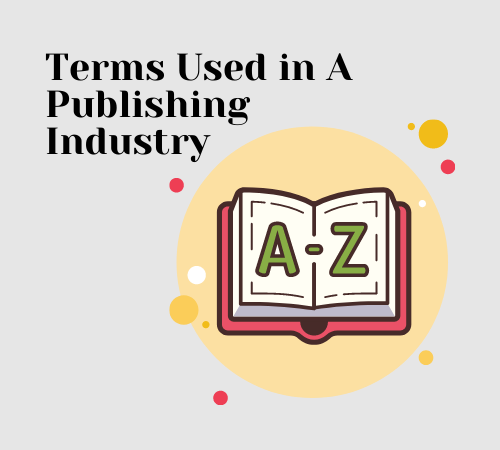The following lists are the common publishing terms in the industry. The lists of definitions below are the general overview of the terms and how the publishing industry uses them.
Publishing Terms
Advanced Reading Copy (ARC): It is a pre-publication transcript of a recent material distributed to individuals who will read it before it is published.
Alpha Reader: It sees the draft first before it reaches the beta reader. Thus, they address the material of the author as a writer-reader.
Beta Reader: An individual or a group that reads a particular book that is not yet out in the public or market and provides feedback (reader’s perspective).
Editing: It is the method of choosing and arranging textual, photographic, visual, auditory, or cinematic material to convey a message or information by a person or organization. Editing may include performing various changes to create a piece of correct, consistent, and accurate work.
- Types of Editing (Content Editing, Copy Editing, Developmental Editing, Line Editing, Proofreading)
Editor: They are responsible for compiling and editing material for a publishing company, newspaper, magazine, or other publication at the management and sometimes policy-making level.
- Types of Editor (Acquisition Editor, Associate Editor, Content Editor, Copy Editor, Critique Partner, Developmental Editor, Editor-in-Chief, Online Editor, Proofreader, Structural Editing/Substantive Editing)
Hybrid Publishing: It is a combination of the elements of traditional and self-publishing. Most of its features are similar to traditional publishing.
What is an ISBN?
International Standard Book Number (ISBN): It is an international identifier for books and identifies each edition with a unique number.
Literary Agent: They serve as a middleman between writers and industry members, representing the writer and their materials.
Metadata: It refers to the information about the book. It includes the keywords, subtitle, author name, ISBN, BISAC code, author bios, reviews, date publication, and other relevant information.
Movie Screenplay: A movie screenplay is a fully fleshed-out script that movie and television producers can use as a medium of assessing if an adaptation of your book is worth producing.
Movie Treatment: It is also known as film treatment or merely a treatment. A document that provides a thorough guide that outlines how the screenwriter would adapt your book into a developed screenplay.
Query Letter: It is a formal letter written to editors of magazines, literary agencies, and occasionally to publishing companies.
Self-Publishing: The author, itself, will be the one overseeing all the duties in publishing a book. It includes book editing, book design to book marketing. There is no involvement from a renowned publisher, and the author has full ownership of the royalties and rights.
Traditional Publishing: It offers the author a contract and, in return, publishes the author’s book. They publish it and sell the author’s book through retailers and booksellers.
Are you looking for a literary agent? Handing your book to publishers is a daunting task. However, companies like Quantum Discovery can help you with your needs regarding having your book delivered to the right publisher. Contact our professionals by calling (888) 755-6875 or visit quantumdiscovery.net to know more.

I do not even know how I ended up here, but I thought this post was great.”링크판” I don’t know who you are but certainly you’re going to a famous blogger if you are not already 😉 Cheers!
Hello Savannah,
That’s lovely to hear that you like this blog post. Hope you find other posts as insightful as this one.
Glad to know that you like one of our blogs. We’re we are grateful for taking the time to read our blogs.
I cannot thank you enough for the article.Really thank you! Will read on…
We are also grateful for that you like our posts. We will update regularly.